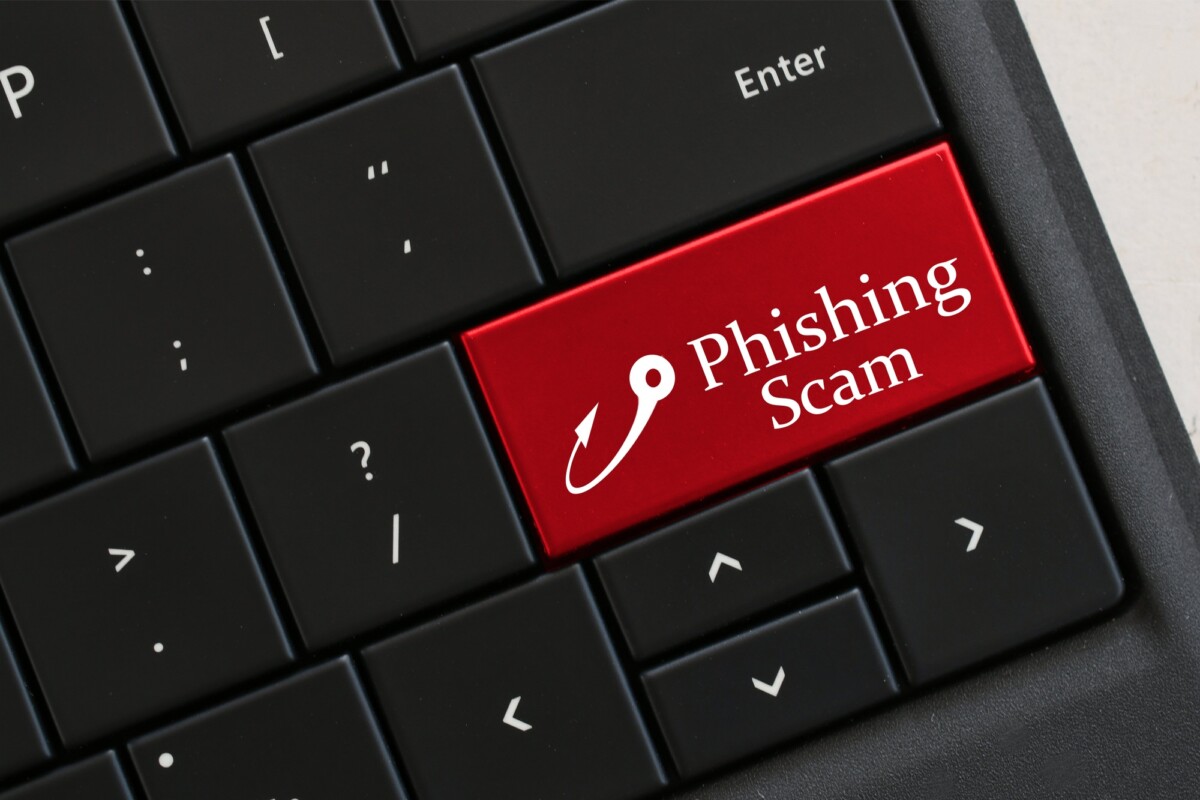Tips to Avoid Loan Phishing Emails and Scams

In today’s digital age, understanding the anatomy of loan phishing emails is crucial for anyone looking to protect themselves from financial scams. These deceptive emails often mimic legitimate lenders, making it challenging to distinguish between genuine offers and fraudulent schemes. By learning to identify these scams, you can effectively engage in Payday Loan Scams and Fraud Prevention, safeguarding your personal and financial information from malicious actors.
CashLoanFunded: Quick Cash for Your Needs
- Suspicious Sender Addresses: Always verify the sender’s email address. Phishing emails often come from addresses that mimic legitimate companies but with slight variations.
- Urgent Language: Be wary of emails that pressure you to act immediately, as scammers use urgency to bypass your rational thinking.
Verifying Authenticity
- Check for Spelling and Grammar Errors: Legitimate companies usually have professional communication standards. Errors can be a sign of a scam.
- Contact the Lender Directly: If in doubt, reach out to the lender using contact information from their official website, not the email. This step is vital in Avoiding Loan Phishing Emails effectively.
How to Spot Red Flags in Loan Offers
In today’s digital age, the threat of loan phishing emails and scams is more prevalent than ever. These scams can lead to significant financial loss and identity theft, making it crucial to be vigilant. By understanding how to spot red flags in loan offers, you can protect yourself from payday loan scams and fraud. Avoiding loan phishing emails requires a keen eye for detail and a healthy dose of skepticism when dealing with unsolicited loan offers.
Unsolicited Offers
- Be wary of loan offers that appear in your inbox without any prior application. Legitimate lenders typically do not send unsolicited emails.
Too Good to Be True
- Offers promising guaranteed approval or exceptionally low interest rates are often scams. If it sounds too good to be true, it probably is.
Request for Personal Information
- Legitimate lenders will not ask for sensitive information like your Social Security number or bank details via email. Always verify the sender’s authenticity before sharing any personal data.
Why Verifying the Sender’s Identity is Crucial
Loan phishing emails and payday loan scams are becoming increasingly sophisticated, making it essential to be vigilant in protecting your personal information. One of the most effective tips to avoid loan phishing emails is to verify the sender’s identity before engaging with any communication. Scammers often disguise themselves as legitimate lenders, using familiar logos and professional language to deceive unsuspecting victims. By taking a moment to confirm the authenticity of the sender, you can significantly reduce the risk of falling prey to payday loan scams and fraud.
Check the Email Address
- Ensure the email address matches the official domain of the lender.
- Be wary of slight misspellings or unusual domain names.
Look for Red Flags
- Generic greetings like “Dear Customer” instead of your name.
- Urgent language pressuring you to act quickly.
Contact the Lender Directly
- Use contact information from the lender’s official website.
- Avoid using links or numbers provided in the suspicious email.
By following these steps, you can enhance your payday loan scams and fraud prevention strategy, ensuring your financial security remains intact.
In today’s digital age, avoiding loan phishing emails is crucial to safeguarding your personal and financial information. These scams are becoming increasingly sophisticated, making it essential to stay vigilant. By understanding the signs of payday loan scams and fraud prevention techniques, you can protect yourself from falling victim to these deceptive tactics. Recognizing the red flags early can save you from potential financial loss and stress.
Verify the Source
- Check the sender’s email address: Ensure it matches the official domain of the company.
- Contact the company directly: Use official contact information from their website to confirm the legitimacy of the email.
Look for Red Flags
- Urgency and threats: Scammers often use urgent language to prompt quick action.
- Unusual requests for personal information: Legitimate companies will not ask for sensitive information via email.
By following these steps, you can effectively navigate and avoid the pitfalls of loan phishing scams, ensuring your financial security remains intact.
Also Read: Payday Loan Scams and Fraud Prevention: What to Know
The Role of Secure Browsing in Avoiding Loan Phishing Emails
In today’s digital age, avoiding loan phishing emails is crucial for protecting your financial information and personal data. These scams often masquerade as legitimate payday loan offers, luring unsuspecting individuals into sharing sensitive details. Understanding the role of secure browsing can significantly enhance your payday loan scams and fraud prevention efforts, ensuring your online interactions remain safe and secure. Secure browsing is your first line of defense against phishing scams.
By using updated browsers and enabling security features, you can reduce the risk of falling victim to fraudulent schemes. Always look for the padlock symbol in the address bar, indicating a secure connection, and avoid clicking on suspicious links or attachments.
Key Practices for Secure Browsing
- Use Strong Passwords: Regularly update your passwords and use a combination of letters, numbers, and symbols.
- Enable Two-Factor Authentication: Add an extra layer of security to your accounts.
- Stay Informed: Keep abreast of the latest phishing tactics and scams to recognize and avoid them effectively.
By implementing these practices, you can significantly reduce the risk of encountering payday loan scams and protect your financial well-being.
How CashLoanFunded.com Helps Protect You from Loan Scams
In today’s digital age, safeguarding yourself from loan scams is more crucial than ever. With the rise of online transactions, the threat of falling victim to payday loan scams and fraud has increased significantly. Recognizing the importance of avoiding loan phishing emails is the first step in protecting your financial well-being. At CashLoanFunded.com, we prioritize your security by providing essential tools and resources to help you identify and steer clear of these scams.
Key Strategies for Avoiding Loan Phishing Emails
- Stay Informed: Regular updates on the latest phishing tactics keep you ahead of scammers.
- Email Verification: Always verify the sender’s email address and look for signs of phishing, such as misspellings or suspicious links.
Payday Loan Scams and Fraud Prevention
- Secure Platforms: CashLoanFunded.com offers a secure platform for loan applications, ensuring your data is protected.
- Educational Resources: Access to articles and guides that educate you on identifying and avoiding scams effectively.
What to Do if You’ve Fallen Victim to a Loan Phishing Scam
In today’s digital age, the threat of loan phishing emails and scams is more prevalent than ever. Understanding how to identify and avoid these scams is crucial for safeguarding your financial well-being. By being vigilant and informed, you can effectively protect yourself from payday loan scams and fraud prevention mishaps. Knowing what to do if you’ve fallen victim to a loan phishing scam is equally important, as it can help mitigate the damage and prevent future occurrences.
Immediate Steps to Take
- Contact Your Bank: Notify your bank immediately to secure your accounts and prevent unauthorized transactions.
- Change Passwords: Update passwords for all your online accounts to enhance security.
Reporting and Recovery
- Report the Scam: File a report with the Federal Trade Commission (FTC) and your local authorities.
- Monitor Credit Reports: Regularly check your credit reports for any suspicious activity to catch potential fraud early.
Creating Strong Passwords to Safeguard Your Financial Information
In today’s digital age, safeguarding your financial information is more crucial than ever. With the rise of online transactions, the threat of payday loan scams and fraud prevention has become a priority for many. One of the most effective tips to avoid loan phishing emails is creating strong passwords. A robust password acts as a barrier, protecting your sensitive data from cybercriminals who are constantly on the lookout for vulnerabilities.
Why Strong Passwords Matter
Strong passwords are your first line of defense against unauthorized access. They make it significantly harder for scammers to infiltrate your accounts and access personal information. Avoiding loan phishing emails becomes easier when your accounts are protected by complex passwords that are difficult to guess or crack.
Tips for Crafting Secure Passwords
- Use a mix of characters: Combine uppercase, lowercase, numbers, and symbols.
- Avoid common words and sequences: Steer clear of easily guessed words or patterns.
- Change passwords regularly: Regular updates reduce the risk of old passwords being compromised.
By following these guidelines, you enhance your payday loan scams and fraud prevention strategy, keeping your financial data safe.
Why Regularly Updating Your Software Can Prevent Scams
In today’s digital age, avoiding loan phishing emails and scams is crucial for safeguarding your financial well-being. Cybercriminals are becoming increasingly sophisticated, often using payday loan scams to trick unsuspecting individuals into divulging sensitive information. One effective strategy for fraud prevention is regularly updating your software. Keeping your devices up-to-date can significantly reduce your vulnerability to these scams, as updates often include patches for security loopholes that scammers exploit.
Regular software updates are your first line of defense against payday loan scams and fraud prevention. These updates not only enhance the performance of your devices but also fortify them against new threats. Cybercriminals frequently target outdated systems because they are easier to infiltrate. By ensuring your software is current, you close off potential entry points for phishing attacks.
Benefits of Regular Software Updates
- Enhanced Security: Updates often include security patches that protect against the latest threats.
- Improved Performance: New updates can optimize your device’s functionality, making it harder for scammers to exploit.
- Bug Fixes: Regular updates fix vulnerabilities that could be exploited by phishing scams, ensuring your personal information remains secure.
By staying proactive with updates, you can effectively avoid loan phishing emails and keep your financial data safe.
How to Educate Others About Avoiding Loan Phishing Emails
In today’s digital age, the threat of loan phishing emails and scams is more prevalent than ever. Educating others about avoiding loan phishing emails is crucial to safeguarding personal information and financial security. By understanding the tactics used in payday loan scams and fraud prevention strategies, individuals can better protect themselves and their loved ones from falling victim to these deceptive schemes. Sharing knowledge about these threats not only empowers individuals but also strengthens the community’s overall resilience against cybercrime.
Recognize the Red Flags
- Be wary of unsolicited emails offering loans with too-good-to-be-true terms.
- Check for grammatical errors and suspicious email addresses.
Verify the Source
- Always verify the legitimacy of the lender by checking their official website.
- Contact the company directly using contact information from their official site, not the email.
Share Resources and Information
- Encourage others to stay informed by sharing articles and resources on payday loan scams and fraud prevention.
- Organize community workshops or online webinars to discuss and educate about these scams.
FAQ
1. What is a loan phishing email?
A loan phishing email is a fraudulent message that pretends to be from a legitimate lender, aiming to steal personal information such as bank account details, social security numbers, or login credentials. These emails often contain links to fake websites designed to collect sensitive data.
2. How can I identify a loan phishing email?
Look for signs like poor grammar, spelling mistakes, and urgency (such as “act now or lose your chance”). Phishing emails often use generic greetings like “Dear Customer” instead of your name. Be wary of emails that ask for personal information or request payment before an official loan process begins.
3. What should I do if I receive a loan phishing email?
If you receive a suspicious email claiming to be a lender, do not click any links or open attachments. Report the email to your email provider as spam or phishing. If the email claims to be from a legitimate lender, contact the company directly through official channels to verify the message.
4. How can I protect myself from loan phishing scams?
To protect yourself, avoid clicking on links or downloading attachments from unknown sources. Use strong, unique passwords for your online accounts and enable two-factor authentication. Always verify loan offers or inquiries by contacting lenders directly through their official website or customer support number.
5. Are loan phishing emails common?
Yes, loan phishing emails are quite common, especially during times of financial uncertainty or when people are actively looking for loans. Scammers exploit the desperation of borrowers to trick them into revealing personal and financial information.
Secure Funds at CashLoanFunded – Get Cash Fast!
🔗At ExpressCash, we’re here to help guide you through the process and find the right financial solution for your specific situation.
Get a Loan!
"*" indicates required fields



